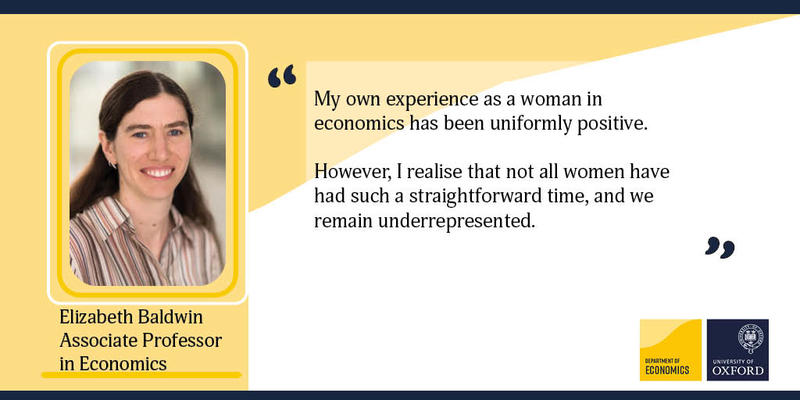Ahead of International Women's Day, we spoke with Associate Professor Elizabeth Baldwin to explore what led to her career in Economics, and what she thought could be improved upon to welcome more women into the field of Economics.
Before I was an economist, I was a mathematician. I found I wanted to work on problems that had a more immediate impact on the wider world and on questions that I cared about, so I left my postdoc in mathematics to take a masters in economics, and never looked back! My own experience as a woman in economics, has been uniformly positive. Yes, people do ask a lot more questions throughout a seminar than they would do in mathematics, but I enjoy that level of engagement. However, I realise that not all women have had such a straightforward time, and we remain underrepresented.

I wonder whether things have been simpler for me because of my mathematical background. Perhaps problems of representation in the discipline, are linked to cultural perceptions that strong mathematical skills are primarily a male attribute -- but a doctorate in geometry gives you a free pass to a hearing, and to respect? I'd be interested to hear other female economists' experiences (though I should note that I'm far from being the only female economist in Oxford with a strong mathematical background). If this is part of the problem, then it gives me an opportunity to briefly rant about the cultural mis-perception, popular in the UK and elsewhere, that either you are a "maths person" or "you just can't do maths". This is untrue -- maths is a skill to be learnt, practiced, exercised, like any other. And it leads so many people to rule themselves out, or to find others have implicitly ruled them out, of so much.